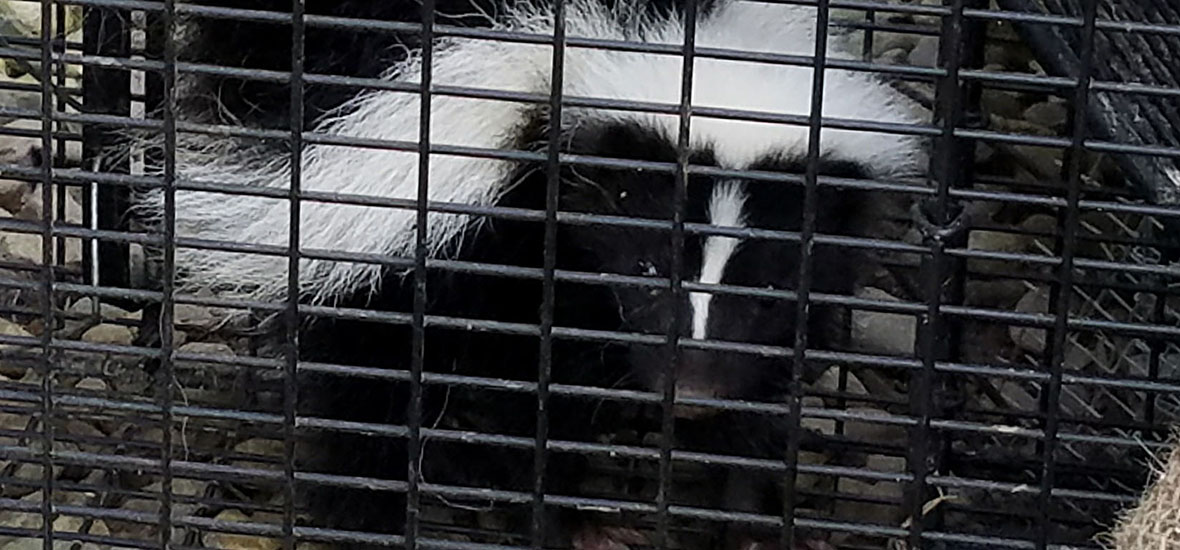- info@Topekapestanimal.com
Call 24/7 for a free quote:
785-530-5518
Do All Kansas Skunks Have Rabies? Learn the Best Ways to Tell!
With their unique white and black fur, it is not difficult to identify a Topeka skunk. Most people think that a skunk in their yard can expose their pets and kids to the dangers of the rabies virus. While the skunks are indeed possible carrier of rabies, you will find out that encountering a rabid skunk is actually very rare.

A Guide on Rabies and Skunk
Rabies is caused by a virus that specifically attacks the central nervous system of its host. Not all Kansas skunks will be infected with the virus and only those who are infected with rabies will be able to transmit them. When they are rabid, there are some prevalent signs that you will notice. You will realize that the skunk is behaving unnaturally. Rabies can only be spread through the saliva of the infected creature. It will not be spread through the urine, feces or even through the spray of the skunk.
A Topeka Skunk with Rabies
The Kansas skunk infected with rabies may appear in different form. They may act very aggressive towards other animals or they may appear very calm. In the ‘aggressive’ form of the rabies, the skunk will act erratic towards humans and other animals that they used to fear. They have foam in their mouth and they are drooling excessively. On the contrary, the ‘calm’ form of the rabies will make the creature appear lethargic. It may not show interest on the things that are happening in its environment. In addition, it will wander around your yard without any particular goal. Keeping its balance will also be troublesome.
Carriers of Rabies
Some Kansas people believe that all forms of skunk will carry rabies but this is not a fact. In order for the skunk to be infected, it will first have to be bitten by another infected animal. A skunk that has been infected with the rabies virus can survive for 6 months without showing any signs or symptoms. While a lot of people will blame the skunk for the transmission of the rabies virus, it will be quite unfair to blame the skunks for it. All mammals are possible carrier of rabies.
Deaths due to the rabies virus are rare. In fact, based on the latest numbers, there are only 3 deaths that are related to rabies every year. Most of them are not caused by the skunk but by household pet such as dogs and cats and squirrels. In order to remain safe, you should only keep a safe distance from any wildlife creatures especially if they are acting rabid. You should also check the local policy and regulations on the proper vaccination of your pets to keep them safe from the dangers of the rabies virus.
The healthy type of Topeka skunk will prefer to run away from humans rather than to confront them especially if there is an escape route. However, if they have been coerced or threatened, a skunk will attack even if they are not infected with the rabies virus.
Visit our Topeka wildlife removal home page to learn more about us.

